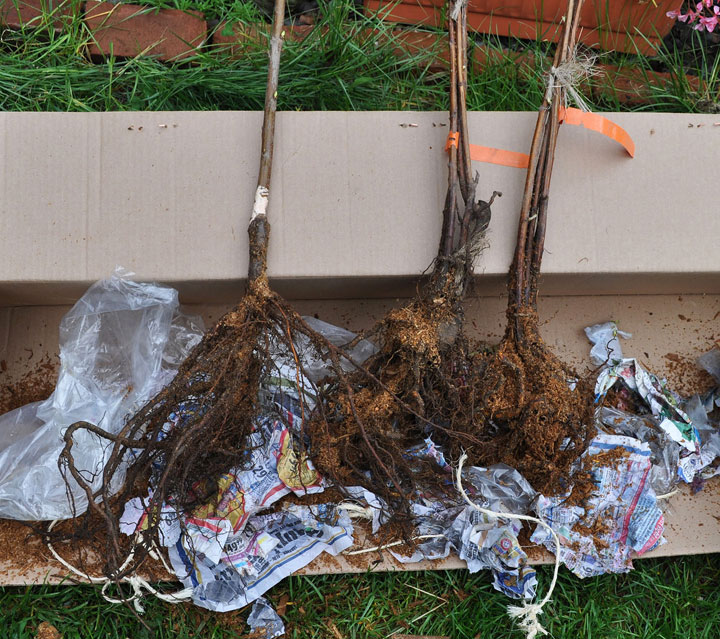You can buy trees, shrubs, and flower plants through the mail that are as high-quality as those you can get locally, and often in greater variety.

Problem is: Not all mail-order nurseries are equally reputable. And you can’t just drive your sickly plant back to the store to show it and complain.
It’s not always obvious when you open a packaged plant that arrived by mail whether that plant has problems.
READ MORE: 5 ways to save money on fruits and vegetables
I once ordered a Green Gage plum tree from a mail-order nursery that specializes in fruits. My mouth was watering a few springs later as branches snowy in bloom foreshadowed delectable fruits for summer. Alas, the ripe fruit lacked the green-gold colour and heart shape of Green Gage, as well as the delectable flavour. I called the nursery about the mislabeled plant and they offered to replace it. Yeah, right. And wait another few years to see if they got it right this time?
The lesson: Investigate before you purchase. A website such as davesgarden.com or magazine articles are ways to sleuth out a nursery’s track record.
WORDS TO WATCH FOR
Winnowing through the wording of plant descriptions can help you avoid disappointment. Too many superlatives, for example, makes them suspect. I have in front of me a magazine advertisement in which almost every item promises to be “carefree,” “easy” and “blooming year after year.” In fact, hybrid tulips, one of the items offered, bloom year after year for just a few years and then typically lose steam.
This ad also features a “fantastically low-priced offer.” If prices seem too cheap, the plants being sold are likely low-quality. Ten gladiolus bulbs might seem like a bargain at $4.99 – until you read the fine print stating their size. Any good nursery should specify the size of their bulbs. High-quality gladiolus bulbs are large, which means more and better blooms.
Ah, you say, but the nursery has an ironclad guarantee. That’s generally a reliable indicator of nursery quality, however. A nursery may bank on the fact that many people won’t bother to contact it to make good on a guarantee, especially if the plants were inexpensive in the first place.
And a guarantee for a free replacement just brings you another plant more worthy of your compost pile than your garden. A mail-order nursery once sent me what seemed like a stick dropped into a sandwich bag – allegedly a bush cherry that I had ordered. My replacement was the same.
Contrast this experience with the one I recently had with a small mail-order nursery that specializes in nut trees and did not even offer guarantees. I noticed that a chestnut tree I had planted last spring had died, so I called to order another. The nursery’s owner insisted on replacing it for free.
RESEARCH BEFORE YOU ORDER
Consult books and reliable websites for information about the plants you’re seeking. The fruit nursery I mentioned earlier bills Liberty apple as one that resists “insects and apple diseases.” Not true! Liberty is a delectable apple and does resist diseases, but it’s no more resistant to insects than a disease-susceptible McIntosh. And their Granny Smith apple? Yes, it does have a “unique, spritely, crunchy flavour,” but there’s no mention of that fact that it won’t have time to ripen in northern gardens.
When a mail-order plant arrives, inspect it. If the plant seems OK, plant and care for it. If problems arise, don’t be too quick to blame yourself.

Comments